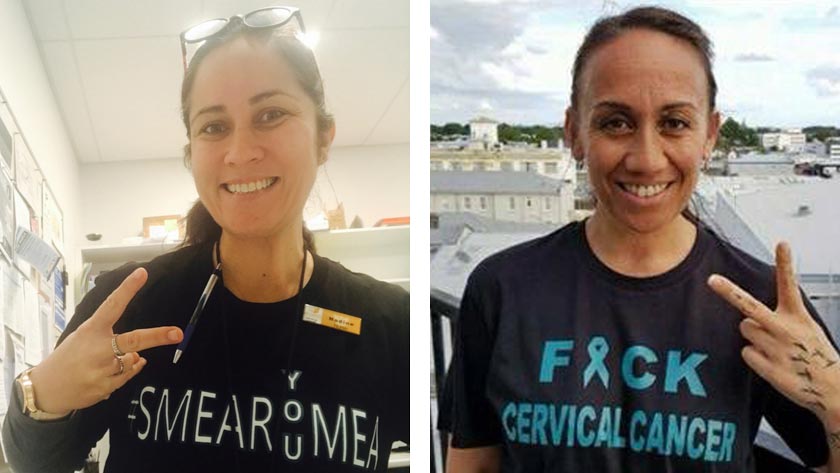
Morrison had not had a smear for several years after an uncomfortable one and was diagnosed with cervical cancer in 2017.
She blogged about her experience, encouraging others not to miss their smears, which turned into SYM.
The slogan was gifted by whānau at Korowai Aroha health centre in Rotorua where Morrison lived and the campaign has continued with the support of her whānau.
Morrison died at 42, in 2018, shortly before Riwai took up her role, but had made a huge impact on Riwai, who sits on the SYM Trust alongside her role at Waikato District Health Board. “I wanted to have an influence in this area… and keep her legacy going.”
As a nurse, Riwai knows how important it is to have regular smears, but also knows women can be too busy, embarrassed or put off by an unpleasant smear experience. Her approach is to make women as comfortable as she can – she connects, chats and reassures them, and often travels to people’s homes if they prefer, including on evenings and weekends. “I just want to make it a positive experience.”
She uses a small plastic speculum and finds a bit of humour can break the awkwardness of the intimate examination. For her home visits, she tries to allow an hour, as often women open up about their lives and health – which she sees as an opportunity. “You’re not just there to find a cervix!” she laughs.
“I have got a real passion for just being there. It’s not just what suits me, it’s what suits who I’m going to.”
Her focus is all women, but she travels widely through the region, visiting homes, marae and wānanga and talking to kaumātua, in an effort to reach as many Māori as she can. “Anything I can do to normalist and promote regular cervical screening.”
Research in 2019 showed wāhine Māori aged 25-44 were three times more likely to die from cervical cancer than non-Māori in the same age bracket.1
Back when the National Cervical Screening Service began in 1990, there were outspoken wāhine Māori like former Māori Women’s Welfare League president Dame Mira Szaszy, who connected wāhine Māori to the service, Riwai said. But over time, Māori testing rates had “waned”.
Riwai travels with screening kit in her bag, ready to perform a smear at any time – and her team has set up mobile screening clinics at events such as field days and waka ama throughout the region, as well as at COVID-19 clinics on marae. Her team also are busy promoting and normalising the need for regular cervical smears. “You can screen anybody who is willing – it doesn’t matter where they’re from, I just do it.”
She hopes the less invasive self-testing will be free to all and available outside clinic hours.
When she took up the role, friends asked her if she would be looking at vaginas all day, to which she says yes… and no! There is a lot of talking and she takes all the time she needs for that.
“Know my face before you know my cervix” – Waireti Walters
Riwai quotes the late Māori health advocate Waireti Walters who said, ‘Know my face before you know my cervix’.
“It’s the first job I’ve had which doesn’t feel like a job.”
Waitemata cervical screening nurse specialist Jane Grant describes Riwai as an “early adopter, seeing the potential to improve outcomes, and using her strong voice and connections to keep talking about self-testing as an option for those who want it.
Reference
- Victoria University of Wellington: Wellington Faculty of Health. (2019). Self-testing cervical cancer screening could save Māori women’s lives.
August marks the four-year anniversary of Talei Morrison’s diagnosis. On Sunday August 29, the Smear Your Mea Trust will be running free cervical screening clinics across Aotearoa to mark Smear Your Mea day, in honour of Talei’s legacy. Check Smear Your Mea’s Facebook page for details.



